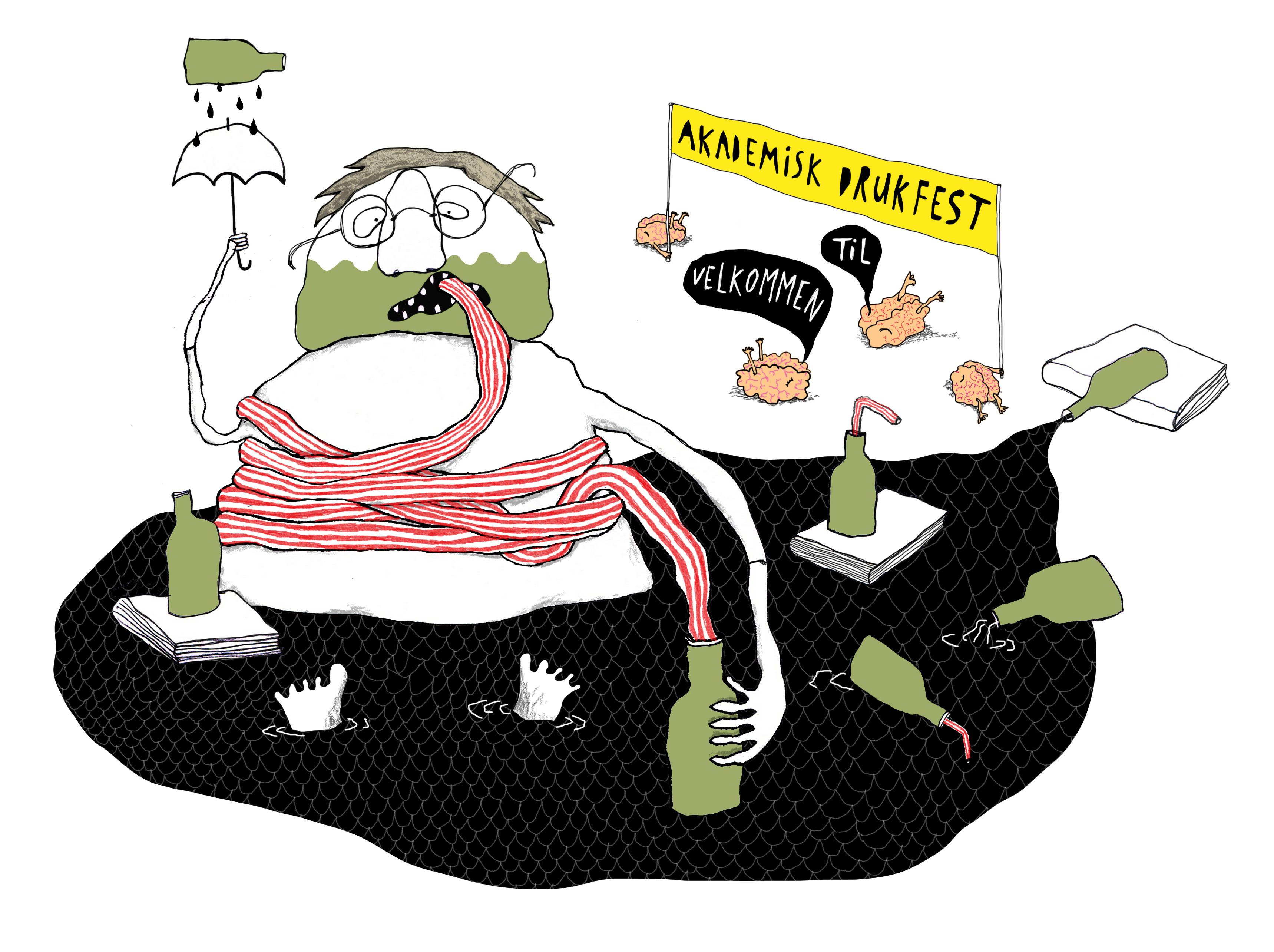Down the hatch – or pour the dregs over your head!
Feature article about students attitude to alcohol by university chaplain Elisa Morberg Wejse, Aarhus University, Business and Social Sciences.

Freshers’ week is upon us – so I’d better put a box of handkerchiefs on my desk. Because the same thing happens every academic year: young people who have felt pressurised to drink loads of alcohol come knocking at my door with tears in their eyes.
A study carried out by the Danish National Institute of Public Health shows that during the past ten years the consumption of alcohol during study trips by Danish high schools has fallen significantly. Young people at our high schools think there’s too much drinking going on; and according to Jens Boe Nielsen, who is the chair of the association of principals at Danish high schools, the trend has inspired most schools to tighten up.
So what about our universities? Here too, some students are fed up with an excessively relaxed attitude to alcohol. At the start of each academic year, last year’s freshers are tutors for the new students, who have no idea of what awaits them when they turn up full of expectations about their new degree programmes. They’re greeted by photos of last year’s wild freshers’ parties, and the message is clear: there’s going to be plenty of booze every evening, and you can’t have a great party without huge quantities of alcohol. I’ve witnessed this with my own eyes when I introduce myself to the students as the university chaplain. And when I cycle home after work I see large groups of new students on their way into the supermarket to buy beers and spirits. I’m not against this in principle, because parties can be great fun. And don’t get me wrong: I’m not a teetotaller.
But in the early weeks of the semester a number of young people come to see me in tears because they have no idea how to cope with all these wild, alcohol-fuelled parties. I feel compelled to speak out! New students want to be successful and make friends. But unless they join in all the drinking, they fear that people will perceive them as boring. They can be exposed to some pretty serious peer pressure, and several students have told me that they feel marginalised if they don’t want to drink shedloads of alcohol. Others report that they feel pressurised to drink themselves under the table. They can’t remember anything the following day. Young men find this particularly difficult. Perhaps they find it harder to say no? I’ve even met students who have had a difficult time in their class for the whole of the first year because they don’t want to drink alcohol. And I’ve met international students who have been shocked by the focus on alcohol. Some of them have never seen anything like it, and they don’t know how to manage it.
Fortunately, however, alcohol consumption during the daytime is forbidden at BSS, which is where my office is. You aren’t allowed to drink alcohol until each day’s introductory programme ends at 5 pm. What a great idea! I think the whole university should introduce the same rule as soon as possible. If you aren’t 100 per cent awake during the daytime, you’re wasting time and showing disrespect for the tutors who have spent months planning freshers’ week – and for the people giving the presentations.
But after 5 pm and at weekends things go wild. People might say that these are responsible adults above the age of 18 who can look after themselves. But who’s responsible if there’s any peer pressure, or if things get out of hand? The management and staff have all gone home, and their parents are miles away. I actually know students who don’t dare to go on the freshers’ weekend trip! Each year the tutors want to make sure that freshers’ week is even wilder than it was the previous year. So the culture of drinking simply gets more pervasive each year.
I’m convinced that a lot of students – and not just the few who come to see me – would be relieved if they could have a good time during freshers’ week with plenty of parties and beer without people getting so totally sloshed.
Do you agree? Give us your views

